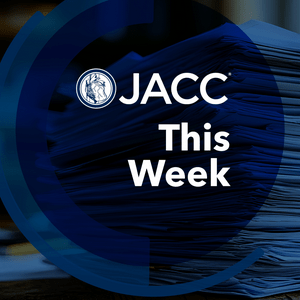Sin publicidad. Más Prime.
Sin publicidad. Más Prime.
Sin publicidad. Más Prime.
Sin publicidad. Más Prime.
El podcast comienza en
- 0 sec.
February 24, 2026: ACHD Guideline in Focus—From Survival to Stewardship | JACC This Week
JACC This Week Bonus Episode – Women's Cardiovascular Health: From Inclusion to Redesign
February 17, 2026: Women's Cardiovascular Health in Focus: From Inclusion to Redesign | JACC This Week
February 10, 2026: Amyloidosis in Focus: Diagnosis Delays, Early Treatment, and What Clinicians Must Know | JACC This Week
February 3, 2026: A New Season of JACC This Week: Valve Disease, Editorial Vision, and Engaging the Global Cardiology Community | JACC This Week



JACC This Week